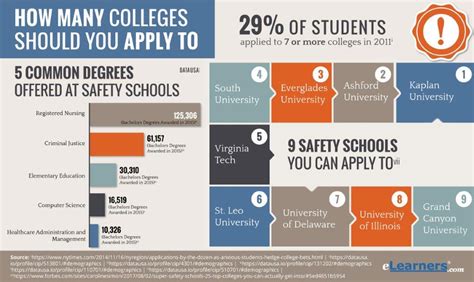Applying to college can be a daunting task, especially when it comes to deciding when to start the process. With deadlines varying widely from institution to institution, it’s crucial to understand the optimal timeframe to submit your applications. In this comprehensive guide, we will delve into the key factors that should guide your timing, providing insights and recommendations to help you maximize your chances of success.

Factors to Consider:
-
Admission Deadlines: College deadlines can fall into one of three categories: early action, early decision, or regular decision.
- Early Action: Allows you to submit an application early, typically by November 1st or 15th. You will receive an admission decision earlier than regular applicants, but you are not obligated to accept it.
- Early Decision: Has the same early submission timeline as early action, but you are contractually obligated to attend the college if accepted.
- Regular Decision: The most common application type, with deadlines typically ranging from January 1st to mid-February.
-
Your Academic Calendar: Determine when your high school transcripts and standardized test scores will be available. Most colleges require official transcripts from all high schools attended and standardized test scores from the SAT or ACT.
-
Personal Statement and Letters of Recommendation: Ensure you have ample time to meticulously craft your personal statement and secure strong letters of recommendation from teachers, counselors, or mentors.
-
College Research: Thoroughly research your desired colleges, including their academic programs, admission requirements, and campus culture. Attending college fairs, visiting campuses, and connecting with current students can provide invaluable insights.
Recommended Timelines:
For Early Action/Decision Applicants:
- Begin the application process in the summer before senior year.
- Take standardized tests early (June or July) and retake if necessary.
- Request letters of recommendation in August or September.
- Submit your applications by November 1st or 15th.
For Regular Decision Applicants:
- Start the process in the fall of senior year.
- Take standardized tests in October or November.
- Request letters of recommendation in November or December.
- Submit your applications between January 1st and February 15th.
Why Timing Matters:
- Increased Chances of Admission: Early action/decision applicants traditionally have a higher acceptance rate than regular decision applicants.
- More Time for Decision-Making: Applying early gives you more time to weigh your options, visit campuses, and make an informed decision.
- Less Stress: Starting the process early helps reduce stress and anxiety associated with the application process.
- Enhanced Financial Aid Opportunities: Early applicants may qualify for more financial aid awards and scholarships.
Benefits of Applying Early:
- Higher acceptance rates
- More time for decision-making
- Reduced stress
- Increased financial aid opportunities
Benefits of Applying Regular Decision:
- More time to improve your application
- Opportunity to take additional standardized tests
- Broader range of college options to consider
Tips for Timing Your Applications:
- Create an application timeline: Mark important deadlines and milestones on a calendar.
- Start early: Give yourself plenty of time to complete the process thoroughly.
- Get organized: Keep track of your application materials, including transcripts, test scores, and letters of recommendation.
- Ask for help: Reach out to your counselor, teachers, or mentors for guidance and support.
- Be realistic: Don’t apply to more colleges than you can realistically handle.
Conclusion:
Applying to college is a significant milestone that requires careful planning and execution. By understanding the various factors that influence the timing of your applications, you can make informed decisions that maximize your chances of success. Whether you choose to apply early or regular decision, starting the process early, researching your desired colleges, and crafting a compelling application will position you for a strong outcome. Remember, the optimal application timeline is the one that gives you ample time to showcase your qualifications and demonstrate your fit with your chosen institutions.












